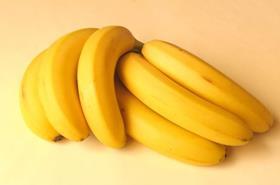
A move to sustainable sourcing is the key driver in the UK banana market this year. Britain’s number-one retailer Tesco switched its entire supply to Rainforest Alliance (RFA)-certified bananas this spring, following in the steps of Lidl, which upped its RFA supplies from 33 per cent to 88 per cent (with the remainder Fairtrade) in February. Both supermarkets announced their switch after Asda shifted its banana sourcing to RFA-certified farms last November. Now some industry sources say up to half of all bananas sold in UK supermarkets could be RFA-certified by the end of this year.
Sustainable banana sourcing is nothing new among UK supermarkets: the Co-op, Sainsbury’s and Waitrose are long-time sellers of mainly Fairtrade or organic bananas. But this latest raft of UK retailer RFA-certified deals reflects a global rise in Rainforest Alliance-certified banana production (from around one million tonnes in 2010, to some 5.9m tonnes in 2014), and a growth in demand from British consumers for ethically-produced fruit.
“Demand for certified schemes such as the Rainforest Alliance is in increased demand [in the UK banana market],” says Simon Trewin, group commercial director of banana importer SH Pratt. “This says customers are increasingly aware of, and concerned for, the environment and small-farmer welfare around the world. A key trend this year is a move to environmental or socio-economic protocols for bananas.”
UK demand for organic bananas is on the rise too, Trewin adds, but growth is small compared to sales of conventionally-produced product, which is holding its own in an increasingly-competitive fruit marketplace.
“Banana consumption in the UK is stable, which is interesting in light of the huge growth of other categories, such as berries,” says Trewin. “This is probably because bananas are tasty, high-energy foods that are easy to eat.”
While bananas are popular with young and old alike (91 per cent of the UK population bought bananas over the last 12 months), market research by Kantar shows core consumers to be adults aged 16-34, frequently men, who eat a banana as a snack before lunch.
“Bananas are seen as a practical on-the-go fruit, where 24 per cent of banana occasions are eaten as a quick bite, eight per cent to tide me over until meal time, and six per cent because it could be eaten on the move,” says Kantar. “Health is also key to banana consumers, where 69 per cent of servings are to get a portion of fruit, and 41 per cent for health benefits.”
Although UK consumption can rise slightly over the summer months, it is pretty steady year-round, says Trewin, whose company mainly sources bananas from Ecuador, Mexico, the Dominican Republic, Colombia and Costa Rica.
Bananas from Guatemala, Honduras and Belize are also starting to become more prevalent in the UK market as some suppliers look for cheaper sources of good quality fruit. Ecuadorean banana prices, for example, were up this year compared to last due to lower production, and high demand from Russia and China, say sources.
El Niño caused some odd climatic patterns, such as cooler weather in certain areas, which impacted production, but not to the extent some had predicted. “Certain growers have made additional improvements in drainage systems on plantations, and national authorities have made investments to control the river flows, in order to mitigate against predicted heavy rain,” says Trewin.
Currently valued at £561.3m, the UK banana market experienced a value decline of -2.9 per cent in the 12 months to late April 2016, [Kantar Worldpanel, 52 w/e 24 April 2016].
However, an increase in shopper base, largely driven by natural household growth, and in purchase frequency, yielded 0.2 per cent volume growth for the market this year, which translates into an extra 1,629 tonnes of bananas eaten by the British public over the last year. “Ninety-one per cent of the UK population have bought bananas in the past year,” says Kantar.
“Everyone loves bananas,” adds Trewin. “Their popularity is spread across the demographic. Sporting events, such as fun runs and marathons, often give out bananas to participants as a healthy energy boost. Bananas are really holding their own in the UK market place, and seem to be one of the more stable commodity products in produce at the moment.”






No comments yet